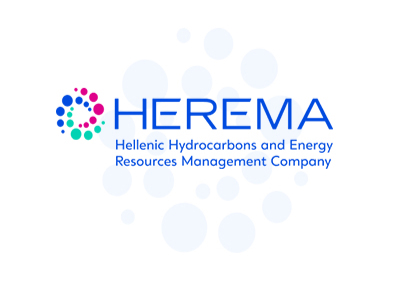PRESS RELEASE
Successful Conclusion of Greek Offshore Natural Gas Investigation
The global geophysical marine seismic acquisition and processing company, Shearwater, today successfully concluded geophysical surveys in Greek offshore waters in the Ionian Sea. The purpose of the investigation is to assess the magnitude and potential of the country’s natural gas reserves.
The investigation comes at a moment when natural gas features prominently on the European energy agenda due to supply shortages which have led to a sharp rise in energy costs for industry and household users. The European Commission has proposed to include natural gas investments within its new E.U. taxonomy for sustainable ‘green’ technologies that will support the EU’s decarbonisation strategy and the attainment of its climate and environmental objectives.
Mr. Aristofanis Stefatos, CEO of HHRM – the company responsible for overseeing the development of Greece’s upstream sector – welcomed the conclusion of the seismic study, saying “this investigation marks a first tangible step in more than half a decade towards enhancing our understanding of Greece’s potential to monetize its gas resources,” adding how the parties involved in the investigation have undertaken their work to the highest environmental standards, exceeding international best practices.
The next step in the process is to analyse and evaluate the data. Prior studies by Greek and international analysts have indicated that Greece’s natural gas reserves could represent upwards of €250 billion in value, with the potential to support coal-to-gas switching in the wider region and financially accelerate the transition to a more sustainable low-carbon energy system. Greece’s National Energy and Climate Plan foresees a significant rise in the country’s use and dependence on natural gas, representing a critical bridging technology in the efforts to build an energy system dominated by green and renewable energy technologies.
Area of investigations: Ionian Sea, Block 10, 3.421 km2, Operator: HELPE
Environmental protection measures applied:
• Use of the ‘soft start protocol’ to ensure marine mammals can temporarily evacuate investigated areas prior to the launch of investigative studies.
• A doubling of marine mammal observers on board the seismic ship to ensure the protection of cetaceans and large sea life within the safety zone (or exclusion zone).
• In the event a whale is observed, doubling of the radius of the safety zone to up to 1.5 km around the seismic ship.
• A 30-minute waiting period before commencing any investigative activity, and after any such activity is brought to a pause.
• Passive acoustic monitoring for background underwater noise levels and marine mammal detection.
• A 1km buffer zone around natura areas as well as fisheries.
• Nearshore and aerial monitoring of cetaceans during and after the survey.
• Environmental monitoring of critical habitats including caretta caretta telemetry with GPS trackers.
• Compliance with all applicable rules, regulation, and directives in accordance with MARPOL VI, ACCOBAMS, and JNCC.
